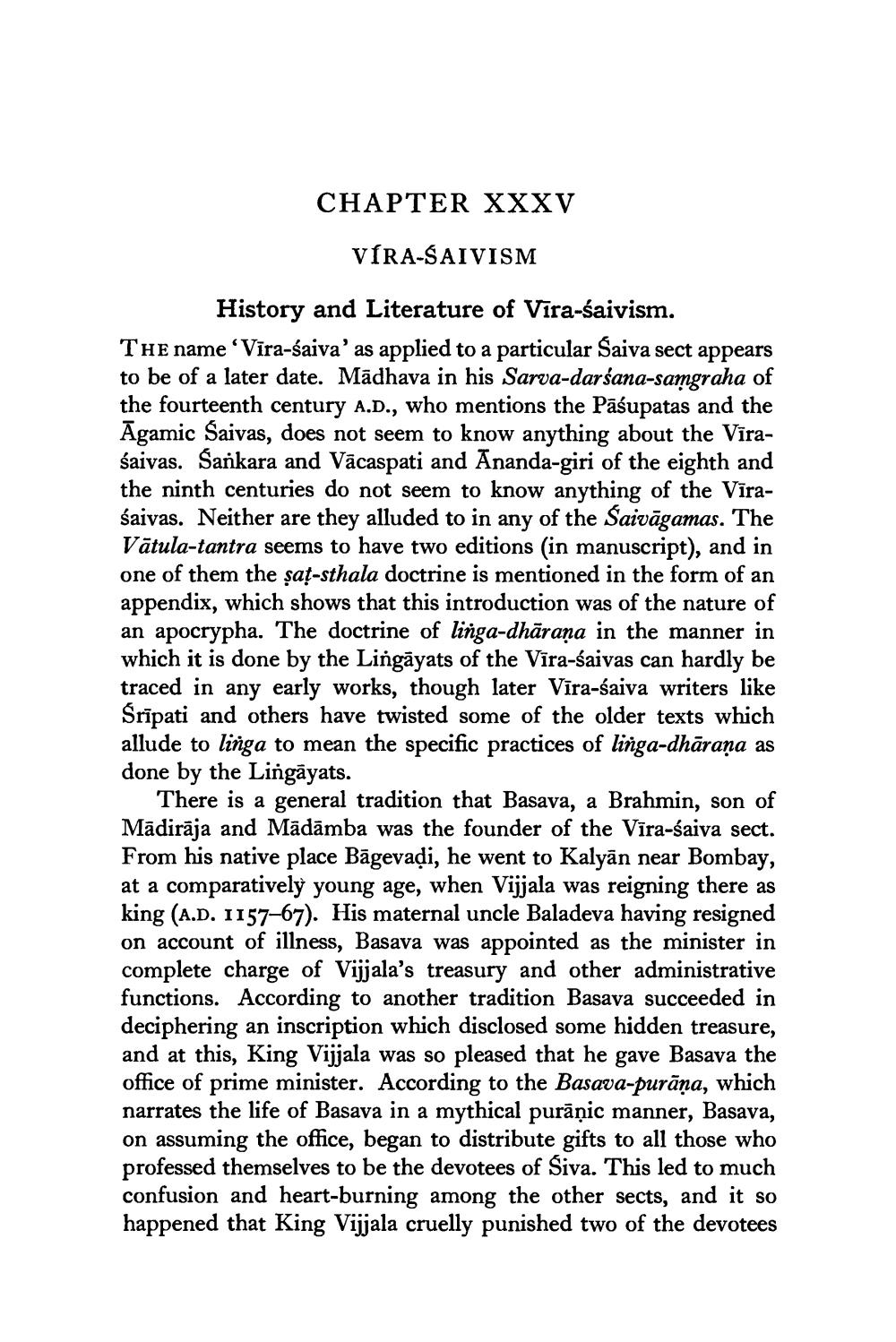________________
CHAPTER XXXV
VÍRA-SAIVISM
History and Literature of Vira-saivism. The name 'Vīra-śaiva' as applied to a particular Saiva sect appears to be of a later date. Mādhava in his Sarva-darśana-samgraha of the fourteenth century A.D., who mentions the Pāśupatas and the Āgamic Saivas, does not seem to know anything about the Vīraśaivas. Sankara and Vācaspati and Ananda-giri of the eighth and the ninth centuries do not seem to know anything of the Vīraśaivas. Neither are they alluded to in any of the Saivāgamas. The Vātula-tantra seems to have two editions (in manuscript), and in one of them the șaț-sthala doctrine is mentioned in the form of an appendix, which shows that this introduction was of the nature of an apocrypha. The doctrine of linga-dhāraṇa in the manner in which it is done by the Lingāyats of the Vira-śaivas can hardly be traced in any early works, though later Vīra-saiva writers like Śrīpati and others have twisted some of the older texts which allude to linga to mean the specific practices of linga-dhārana as done by the Lingāyats.
There is a general tradition that Basava, a Brahmin, son of Mādirāja and Mādāmba was the founder of the Vīra-saiva sect. From his native place Bāgevadi, he went to Kalyān near Bombay, at a comparatively young age, when Vijjala was reigning there as king (A.D. 1157–67). His maternal uncle Baladeva having resigned on account of illness, Basava was appointed as the minister in complete charge of Vijjala's treasury and other administrative functions. According to another tradition Basava succeeded in deciphering an inscription which disclosed some hidden treasure, and at this, King Vijjala was so pleased that he gave Basava the office of prime minister. According to the Basava-purāņa, which narrates the life of Basava in a mythical purāņic manner, Basava, on assuming the office, began to distribute gifts to all those who professed themselves to be the devotees of Siva. This led to much confusion and heart-burning among the other sects, and it so happened that King Vijjala cruelly punished two of the devotees




